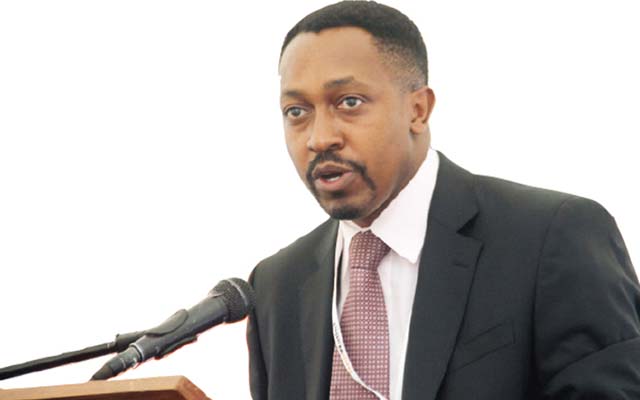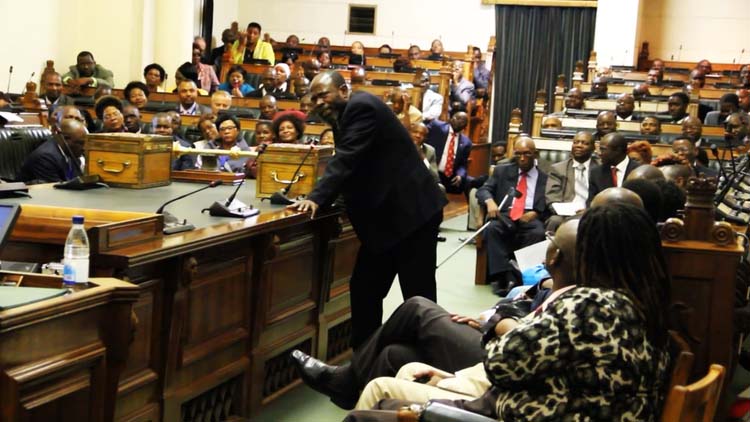Symposium to address economic challenges

 Business Reporter
Business Reporter
ZIMBABWE’S industry is planning a “hard-hitting conversation” with Government and other stakeholders over the challenging situation prevailing in the country.The half-day symposium, scheduled for later this month, will bring together members of the representative body, the Confederation of Zimbabwe Industries, a cross section of Government ministers and other economic stakeholders.
Running under the theme: “Interim & Long-Term Strategies To Address Zimbabwe’s Economic Challenges”, the 2017 Economic Outlook symposium is expected to interrogate critical issues affecting the business environment.
CZI president Busisa Moyo told journalists yesterday that the country is in crisis and there are issues that need to addressed and therefore it cannot be business as usual.
“We would like to have a conversation that is hard hitting,’ said Mr Moyo. “The country is in crisis and obviously it cannot be business as usual. Not only is there a loss of revenue but if companies close we could end up with a very dire situation. So certainly for us it is not a symposium as usual.
“Companies, as we sit here today, cannot pay, are applying for short time and are laying off workers, these are serious issues. This is a serious situation so we certainly cannot have a casual business as usual type symposium,” he said.
However, the industrialists do not rate the situation in the country as hopeless but just challenging.
“The current situation is adverse on business but presents an opportunity for us to work together to emerge from it,” said Mr Moyo.
The conversations will carry different themes with researchers and presenters in charge of each session. The founder of the University of Zimbabwe Graduate School of Business; and Sadc Economic Advisor, Professor Antony Hawkins will give a general over-view of the symposium over-arching theme for the Economic Outlook on interim and long-term strategies to address the economic challenges.
Another conversation will happen under a sub-theme: “Interim and Long-Term Strategies to Ease Liquidity; Reduce Costs and Grow Exports”.
Leading economics consultant and former University of Zimbabwe lecturer, USAID, SERA economist Professor Ashok Chakravarti will present on Easing Liquidity.
“It is hoped discussion of this will ultimately come up with solutions that will improve the country’s liquidity situation, and eliminate the external payments gridlocks,” said Mr Moyo.
Chairman of CZI Standing Committee on Economics and Banking; Zamco Board Trustee; and Crystal Candy managing director Jimmy Psillos will speak on Reducing Costs which is expected to explore and find sustainable ways to address cost competitiveness of Zimbabwe, vis a vis regional and international counterparts.
“Cost of doing business in Zimbabwe is very high, in comparison to our competitors. This has an adverse effect on production, as well as on exports. The major issue that should be addressed is cost, for instance the cost of producing Bonaqua (mineral) in Zimbabwe versus producing it in Zambia is a big problem for us.
“It is 45-55 percent higher than in Zambia,” said Mr Moyo. “If you look at hotels in the Victoria Falls and those in Cape Town, you will find that hotels in Victoria Falls are more expensive. “These are the hard hitting issues that we must talk about. Let us have these issues being addressed in the immediate.”
ZimTrade chief executive officer Ms Sithembile Pilime will speak on Growing Exports and the aim is to assist members to tap into export incentives either from Government or via Reserve Bank of Zimbabwe.
Mr Moyo said the CZI has not dropped its call for internal devaluation and the RBZ Governor Dr John Mangudya had adopted the concept and may include it in his Monetary Policy statement.
“There was mention of internal devaluation essentially takes care of this cost issue to say let us address our cost issues from our taxes, charge, levies, among others. Let us bring them in line with the region, let us benchmark. That is what internal devaluation will do. It will allow us to benchmark our costs. So that is going to be part of the discussion as to how do we address the issue of costs.








Comments